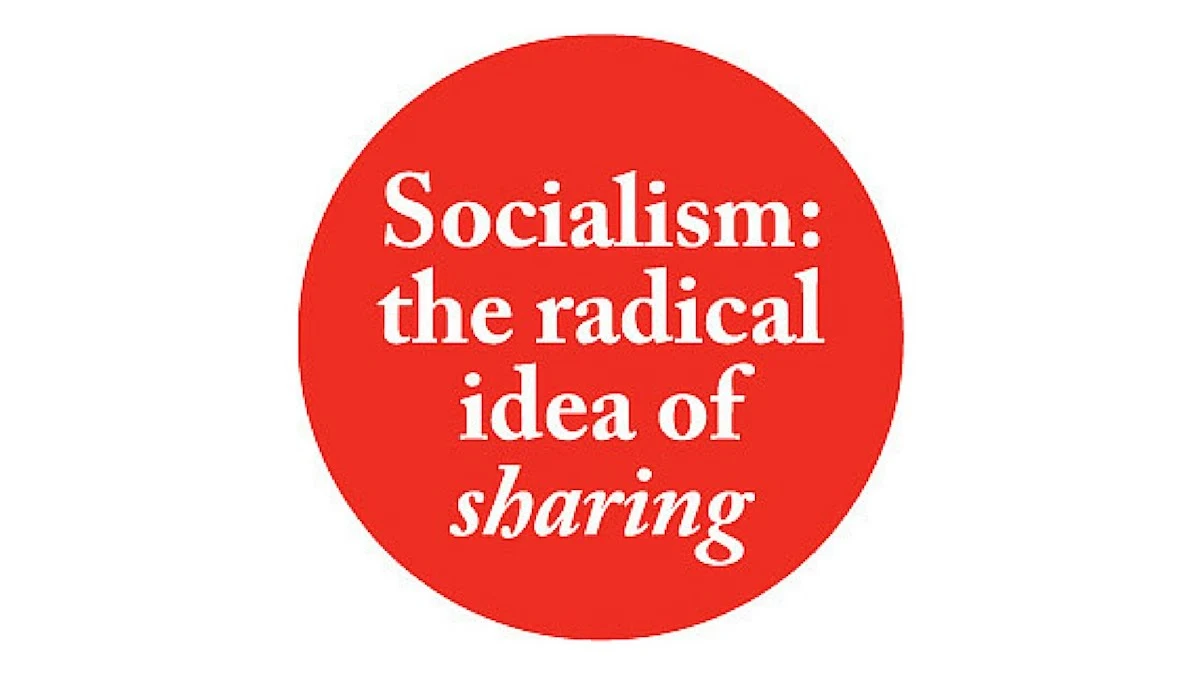Table of contents
Socialism characteristics
Socialism explained is your ‘go to guide’ for an understanding of this leftist ideology.
Socialism calls for public rather than private ownership of the ‘means of production’. This is based on the belief that everyone who contributes to the production of a good, is entitled to a share in it. Therefore, society as a whole should own, or at least control property for the benefit of all.
It has been said there are as many theories of socialism as there are socialists. As a result of the failings of soviet style ‘state socialism’, modern socialists often use the term ‘democratic socialism’ to promote advocacy of their cause.
Socialism simple definition
However, a more basic explanation of socialism often helps to garner wider appeal. Consequently, Senator Bernie Sanders has defined democratic socialism as “the understanding that all of our people live in security and dignity” and “a government and an economy and a society which works for all.” In addition, congresswoman Alexandria Ocasio-Cortez defines it as “democratic participation in our economic dignity.

Socialism vs Capitalism
Socialism is crucial for the health, happiness and survival of the human species. Therefore the modern political struggle is the struggle between capital and labour. Consequently, this manifests in the ideological struggle between capitalism and socialism. Capitalism had existed for a number of centuries.
However the Industrial revolution of the 18th century saw capitalism grow at unprecedented levels. Indeed the poverty experienced by workers showed the stark contrast in the position of the classes. Meanwhile, the ruling class enjoyed unprecedented wealth.
Socialism meaning in history
Karl Marx (1818 – 1883) called for all those who contribute to the production process, to share in the profit created. As a result, he said the ‘means of production’ must be owned by society as-a-whole.
Marx is one of the most influential figures in human history. His work in economics laid the basis for some current theories about labour and its relation to capital. Many intellectuals, labour unions, artists, and political parties worldwide have been influenced by Marx’s work, modifying or adapting his ideas. Marx is one of the principal architects of modern social science

Socialism Explained: Environmental Destruction
Capitalism is predicated on continuous growth. Consequently, all available resources are consumed in the name of profit. This ideology is unsustainable. However, capitalist forces continue to expand production. They do this despite the ecological cost.
Unless capitalism is defeated, it will result in the continued destruction of the natural world. This endangers the survival of many species of life, including humanity. Climate change and its calamitous consequences highlight this.
Late Stage Capitalism
Environmental destruction, war and the collapsing vote of centrist ‘liberal’ parties are all evidence of late-stage capitalism. As capitalism comes to pass, our only hope is for a socialist future.
Socialism is a political theory that offers workers and the poor hope. Hence, we share socialist stories and resources here. For example, we look at how public services help the poor by providing them with the necessities of life. We examine people’s entitlement to welfare. We take the side of Karl Marx in the battle against capitalism.
Types of socialism
There have been different types of socialism proposed, but all involve some level of public ownership.
• Democratic socialism is a type of socialism that calls for a socialist society that is democratically run.
• Marxist socialism is a type of socialism that calls for public ownership of the means of production, distribution and exchange.
• Utopian socialism is a type of socialism that calls for public ownership in a socialist society that is run according to socialist ideals.
• Market socialism is a type of socialism that calls for public ownership of the means of production but allows for a certain amount of private ownership and market activity.
• State socialism is a type of socialism that calls for public ownership of the means of production and distribution but allows for a certain amount of private ownership. One example of state socialism is the former Soviet Union.
Socialism Explained – Solidarity
Socialism is about working together to build a better world. Building a socialist alternative includes being involved in political movements and organisations. This can include everything from supporting campaigns for public housing to being involved in your local trade union. All done from a socialist perspective.
From our perspective, the socialist struggle should include being engaged in the electoral process. Of course, the dice will always be stacked against us, with big capital supporting conservative parties. Hence our community activism and movement building must include electoral politics. Indeed many of us argue that politics is crucial to educate our community and grow our movement.
What You Can Do
Unlike capitalism, for socialism to succeed requires widespread acceptance and action by workers. This collective effort is needed to succeed. There are many ways in which you can be active in the struggle.
Join a union in your workplace. In addition, be an active union member, promoting socialism within the rank-and-file membership.
Join a political party that has a socialist platform and a strong record of pursuing that platform. Support socialist candidates within the party and be active in local community politics with a view to growing the movement where you live.
Yours in Solidarity,
Rob Pyne.
